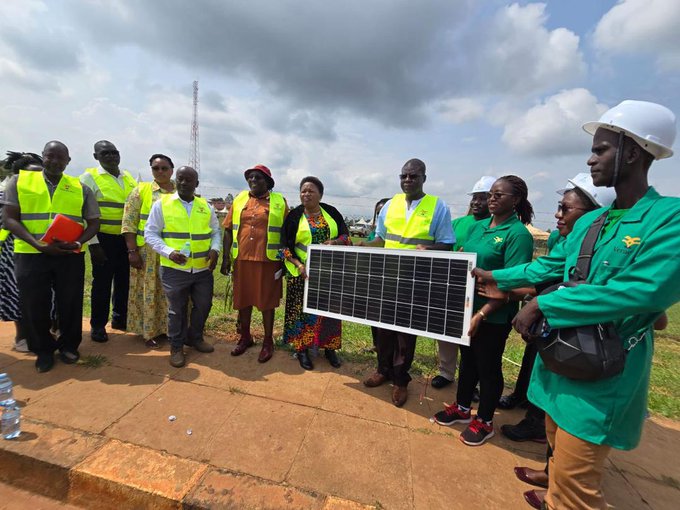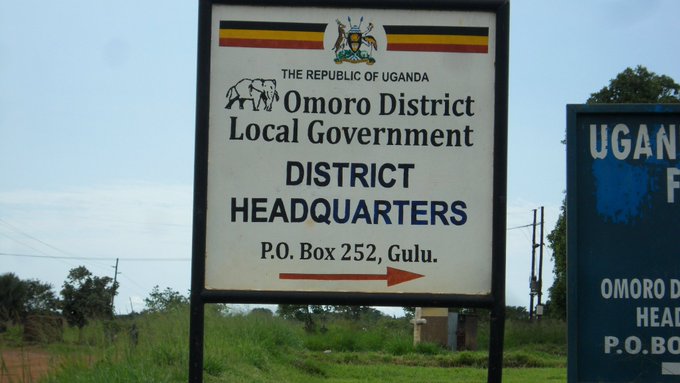Gulu City Council has initiated a significant project to repair 162 solar street lights aimed at enhancing the safety and security of its residents. This project is designed to ensure that streets are well-lit during the night, improving overall public safety.
The repair project, which carries a budget of UGX 448 million, is being funded entirely through local revenue. The initiative reflects the city’s commitment to bettering the living conditions of its residents by addressing the critical need for improved street lighting following vandalism and wear.
A Official explained that the decision to repair the solar lights comes as part of a broader effort to ensure that Gulu’s streets remain well-lit and safe throughout the night. He added Proper street lighting is crucial for preventing crime and making public spaces safer for residents after dark.
In health news, Government health facilities in the Acholi Sub-region are facing a severe crisis due to an overwhelming influx of malaria patients. This situation has been exacerbated by the National Medical Stores (NMS) failing to deliver essential anti-malarial drugs.
The shortage of these crucial medications has left health facilities struggling to manage the high number of malaria cases. The lack of sufficient anti-malarial drugs means that patients are not receiving the timely treatment they need, leading to an increased burden on healthcare workers and facilities.
The Acholi Sub-region, known for its vulnerability to malaria, is now experiencing a significant strain on its health resources. The delay in drug delivery from NMS has intensified the problem, leaving healthcare providers in a difficult position as they attempt to address the growing number of patients.
In Gulu City, the non-governmental organization The Big Fix Uganda has made significant strides in preventing the resurgence of rabies by vaccinating over 9,000 dogs and cats. This effort aims to curb the spread of the disease and address the growing concerns related to stray animals in the area.
The initiative comes in response to the increasing number of stray dogs, which have become more prevalent due to factors such as inadequate feeding by dog owners, limited community support for strays, and poor garbage management in the city. These conditions contribute to the stray dogs wandering the streets in search of food.
Erick Onenrwot, an advocate for animal welfare, highlighted the situation on social media, noting that there are three types of dogs in Gulu: those cared for by their owners, those fed by the community, and strays that fend for themselves. Onenrwot emphasized the challenges faced by these stray dogs, who often roam the streets due to a lack of food and proper care.
He said the vaccination campaign by The Big Fix Uganda is crucial in preventing the re-emergence of rabies, a disease that poses a serious health risk to both animals and humans and that by addressing the rabies threat through widespread vaccination, the organization aims to improve public health and safety in Gulu City.
Gulu Regional Referral Hospital Restarts Life-Saving CT Scan Services After Three-Month Hiatus
Gulu Regional Referral Hospital has resumed its Computed Tomography (CT) scan services after a three-month suspension. The pause in services was due to a malfunction of the CT scan machine, which had rendered the facility unable to perform crucial diagnostic imaging.
The resumption of CT scan services is a significant development for the hospital and its patients, as these scans are vital for diagnosing a range of medical conditions. The downtime caused by the machine breakdown had led to delays in patient care and created challenges for both medical staff and patients who required urgent imaging.
The hospital’s administration has worked to address the technical issues with the CT scan machine, and with the service now back in operation, patients will once again have access to essential diagnostic tools. The return of CT scan services is expected to improve the hospital’s ability to provide comprehensive medical care and support for patients in the region.




















